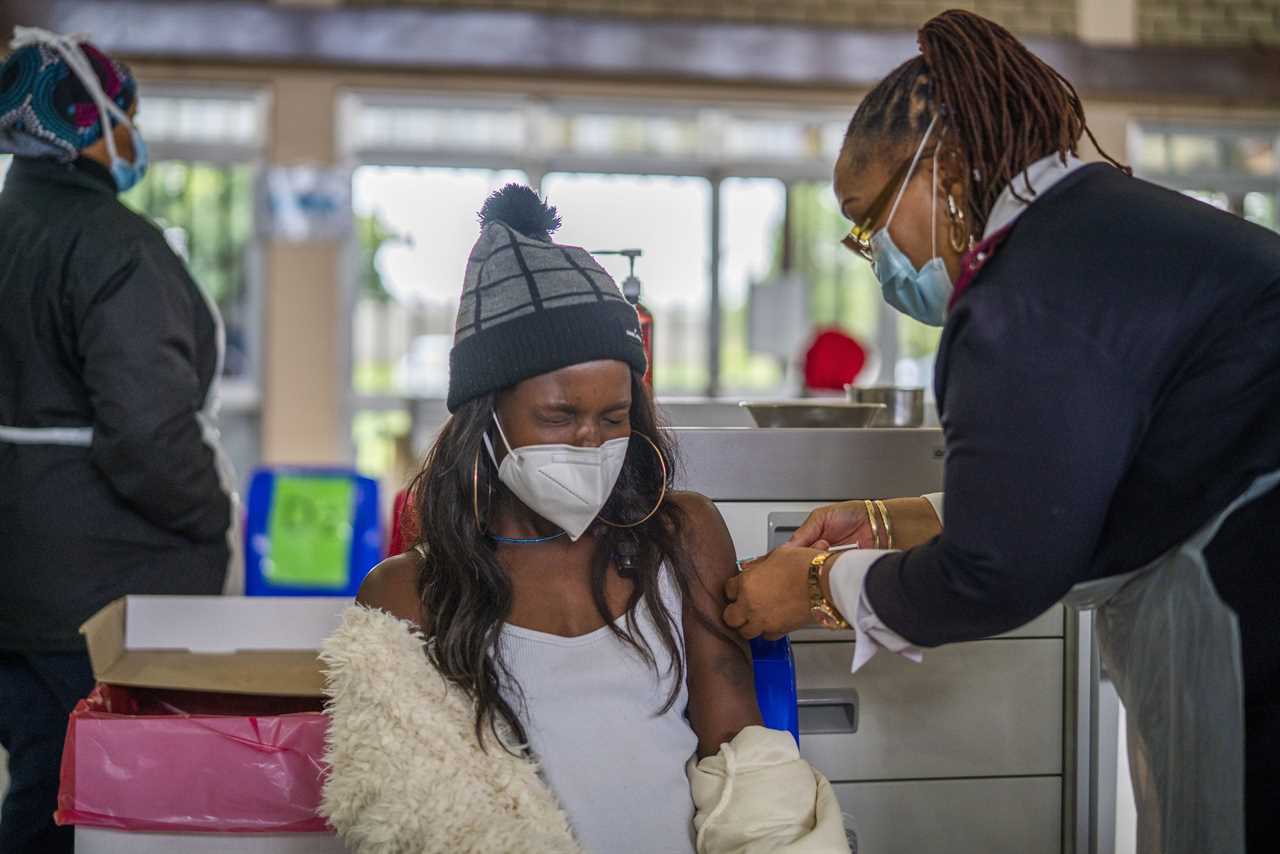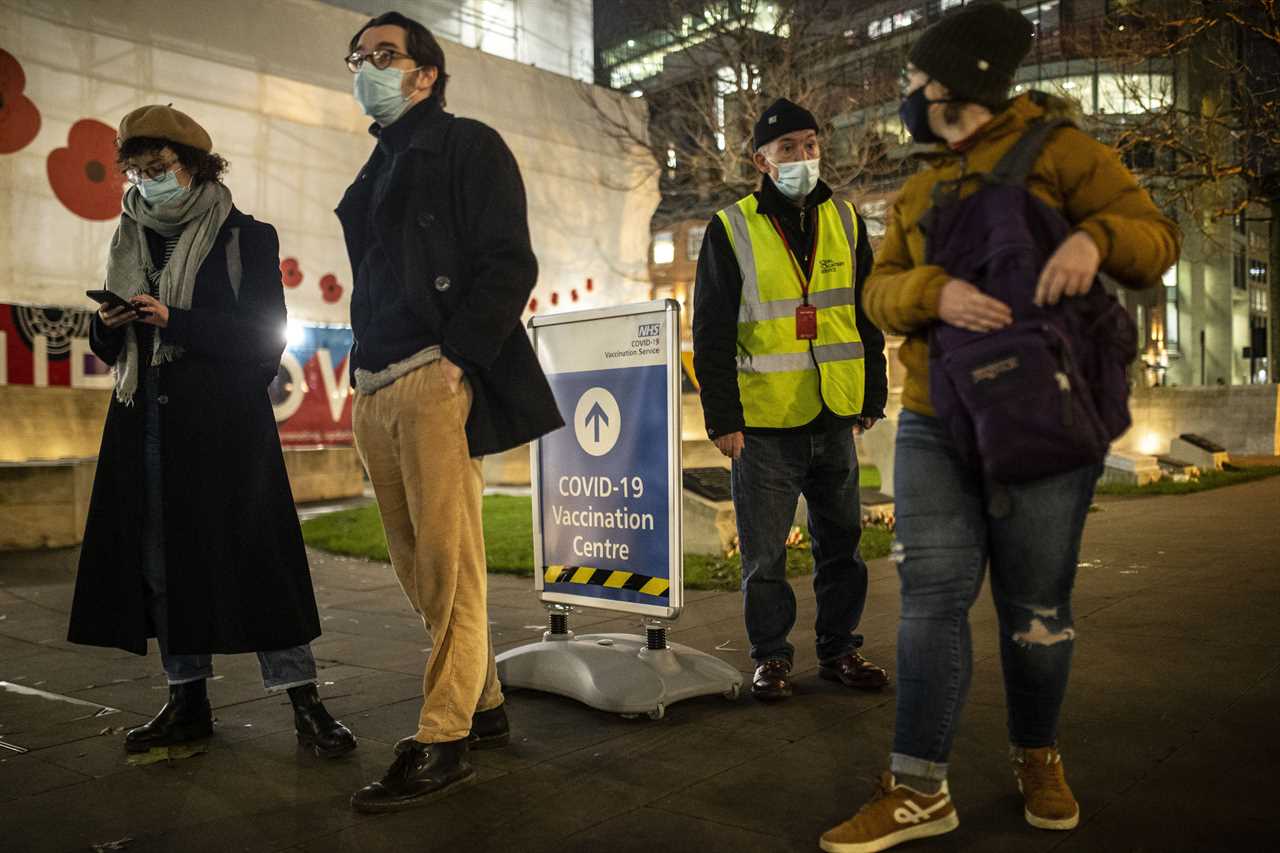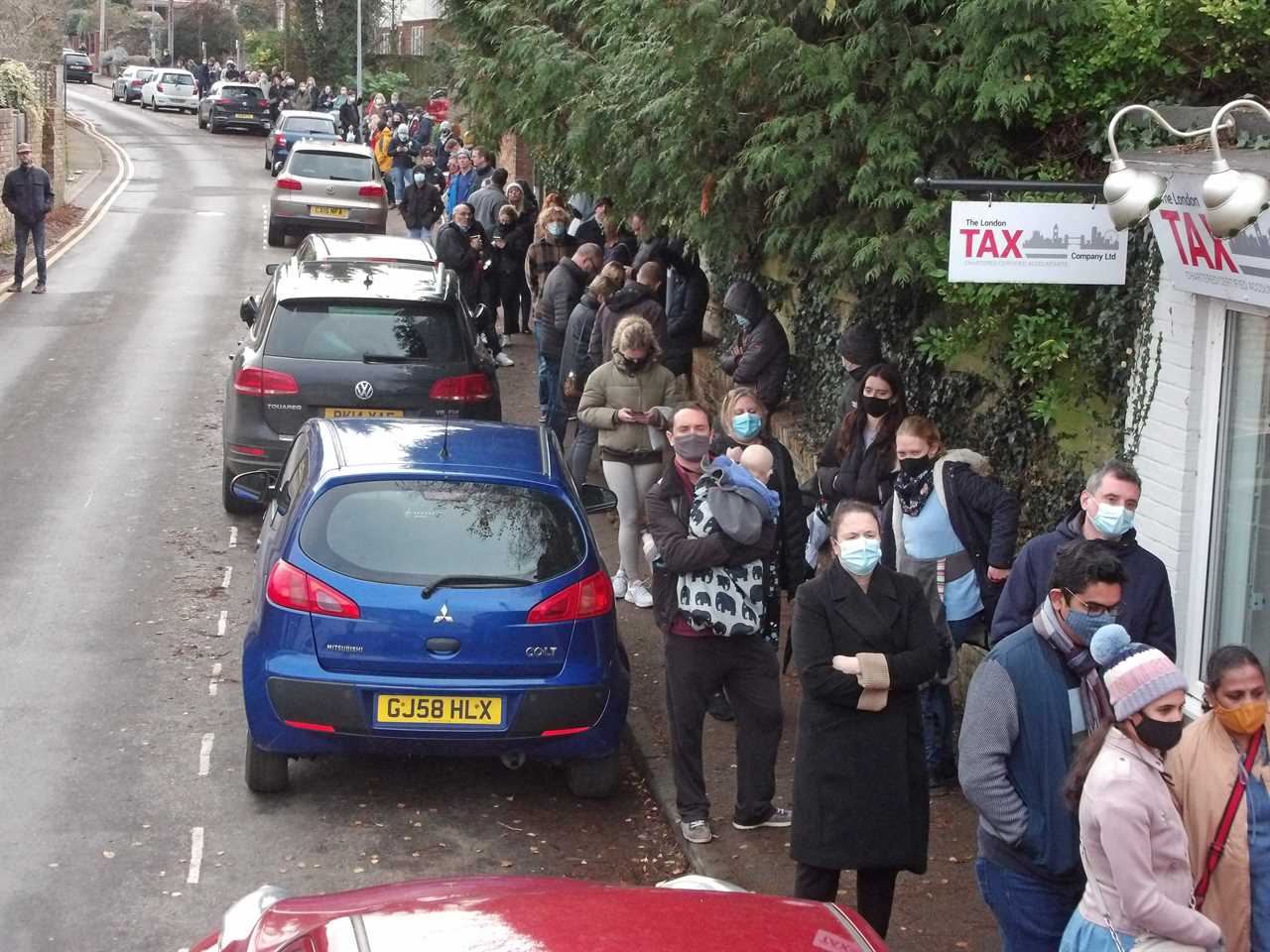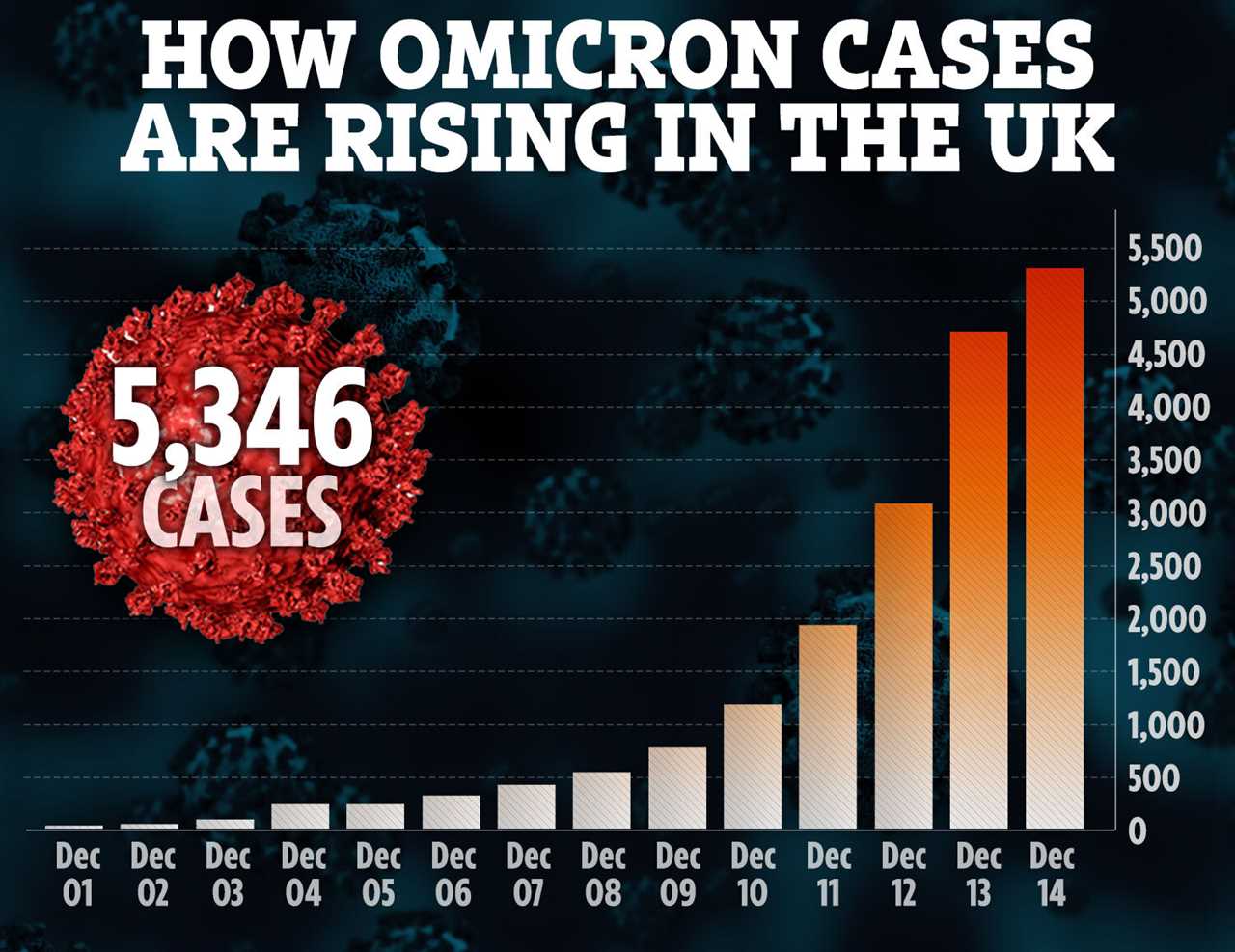OMICRON admissions are a third lower than in South Africa’s first Covid wave, boosting hopes it is milder.
The first real-world study of 200,000 cases there found just two doses of the Pfizer vaccine slash hospital risk by 70 per cent.


And the overall chances of hospitalisation are down by 29 per cent compared to the original variant.
Protection should be even stronger with a booster jab or if people have had Covid before.
Dr Ryan Noach, CEO of Discovery Health in South Africa, said: “The data indicates that the severity of Omicron is 29 per cent lower than what was experienced in the first wave here in South Africa.
“This reduction in severity is encouraging but this is early data so we should not be lulled into complacency.”
He added that hospital patients’ breathing is not as bad as previous waves.
And they are now less likely to need extra oxygen or intensive care unless they are unvaccinated.
But scientists have warned that even if Omicron is less deadly, huge case numbers could still lead to the same surge in hospital patients.
The study, by Discovery Health and the South African Medical Research Council, compared data from 78,000 Omicron cases and over 100,000 other people with Covid.
It comes as the now-dominant variant drives a raging fourth wave in South Africa, with cases 60 times higher than a month ago and hospital admissions up 10-fold.
Sir John Bell, a medicine professor at Oxford, said: “To give a sense of how infectious it is – if you test kids and young adults aged 10 to 20 in South Africa or Zimbabwe at the moment, 50 per cent of them are positive for the virus.”

Read our Covid-19 live blog for the latest updates
But Government Covid adviser Professor Robert Dingwall says that South African health bosses view Britain’s actions on Omicron as an overreaction.
He told The Telegraph: “They clearly don’t feel that the elite panic over here is justified, even allowing for the demographic differences in vulnerability – which are probably more than cancelled by the higher vaccination rate.
“My gut feeling is that omicron is very much like the sort of flu pandemic we planned for – a lot of sickness absence from work in a short period, which will create difficulties for public services and economic activity, but not of such a severity as to be a big problem for the NHS and the funeral business.”
Despite claims the mutant strain is not as severe, it is quickly taking over in Britain and already causes more than half of cases in London.
Hospital admissions in the capital are at their highest level for 10 months even before a major wave has taken off, with 1,018 new patients in the last week.
London is the country’s Omicron hotspot, with 1,935 confirmed cases and another 4,400 suspected already.
Dr Susan Hopkins, medical chief at the UK Health Security Agency, said restrictions could be needed for up to two months to keep the NHS on its feet.
She told MPs: “I would expect that we’re going to be needing some level of restrictions in place for the next four to eight weeks.
“We are going to continue to see hospitalisations from Delta for the next two weeks baked in from the numbers that we have, and then we will start seeing the Omicron cases.”








